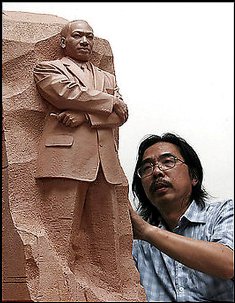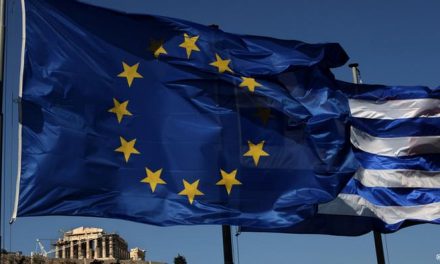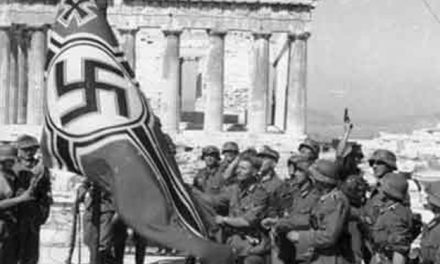The Greeks’ offer was a gracious one: The giant pieces of sculpture for Washington’s new Martin Luther King Jr. Memorial needed to be transported from China. Perhaps Greece, with its large shipping industry and admiration for the civil rights leader, could arrange for vessels to move the monument for free.
Officials planning the $120 million King memorial on the Tidal Basin were delighted. The cost savings would be substantial. And the connection to Greece and its ancient culture would be rich.
But now, with the 159 huge stone blocks that make up the sculpture waiting at a Chinese seaport and major work underway on the memorial site in Washington, Greek officials have told officials of the King project that they can’t deliver.“They apologized and said their country is in dire straits and they will not be able to fulfill their promise,” said Ed Jackson Jr., the project’s executive architect. A spokesman at the Embassy of Greece in Washington confirmed that, saying no Greek shippers could be found to do the job. The “economic crisis bites everywhere,” he said.
Jackson said that project officials have money budgeted for the task but that a new shipper “hasn’t been clearly lined up yet.”
He said the sculpture weighs 1,600 metric tons. Geoffrey C. Powell, vice president of operations for C.H. Powell Co., a Baltimore-based international freight forwarding firm, said shipping rates could range from $60 to $150 a ton — or about $96,000 to $240,000 for such a trip.
Jackson expressed concern about when the elements of the sculpture might arrive. They have been ready for shipment since April, and the departure date has slipped several times. The stones are supposed to be shipped to Baltimore, placed in temporary storage and then transported to Washington for assembly.
The centerpiece of the memorial is a three-story-tall relief of King, which will become one of the biggest figurative sculptures in Washington when it is erected.
Named the “Stone of Hope” — for a line from King’s 1963 “I Have a Dream” speech — the 30-foot 8-inch tall sculpture bears the image of King in a business suit with his arms folded.
That and two other huge segments have been carved in China out of individual blocks by Lei Yixin, a master sculptor. One block weighs 55 tons, another 46 tons. The carving is 80 percent complete and is to be finished in Washington.
Jackson had wanted the stones shipped by May 1. That slipped to June 1. On Thursday, he said he needs the sculpture in the United States no later than the end of July.
The 11,000-mile journey from the port of Xiamen, China, takes about 30 days, he said. Substantial work has been done on the Washington site, amid the Tidal Basin’s famed cherry trees. More than 300 support pilings have been sunk, and the foundation for the memorial’s bookstore has been poured.
Officials had been planning for the elements of the sculpture to be assembled in late August or early September, when Lei is scheduled to arrive to apply the finishing touches. After that, the sculpture will be shrouded until its dedication late next year.
The memorial, authorized by Congress in 1996, has survived 14 years of fundraising challenges, artistic controversy and bureaucratic upset.
Complaints came when a Chinese sculptor was selected instead of an American. Then the U.S. Commission of Fine Arts, a federal panel whose approval is required for monuments and memorials, criticized the sculpture as grim and totalitarian. Then the project was held up by a dispute over architectural security elements. Now this.
Greek officials have said their country has long admired King, especially after a repressive military junta seized power the year before the civil rights leader was assassinated.
“Across the Atlantic, the civil rights movement reached us in the clarion voice of Martin Luther King Jr., and hope stirred in the hearts of many Greek people . . . that ‘We’, too, ‘Shall Overcome,’ ” Alexandros P. Mallias, former Greek ambassador to the United States, wrote in 2008, commemorating the 40th anniversary of King’s assassination.
King, in turn, drew inspiration from ancient Greece, mentioning Plato, Aristotle and Socrates in the famous “Been to the Mountaintop” speech he gave the night before he was slain.
Jackson said he was sympathetic to Greece’s financial plight, in which the nation’s ailing economy has been devastated by the global recession.
“When they made the promise to us, it was prior to the meltdown,” Jackson said Thursday. “I was really hopeful but not really expecting them to pull the rabbit out of the hat.”
“My heart goes out to the country at large,” he said. “I know there’s a special bond between the Greeks and the King legacy.”



















